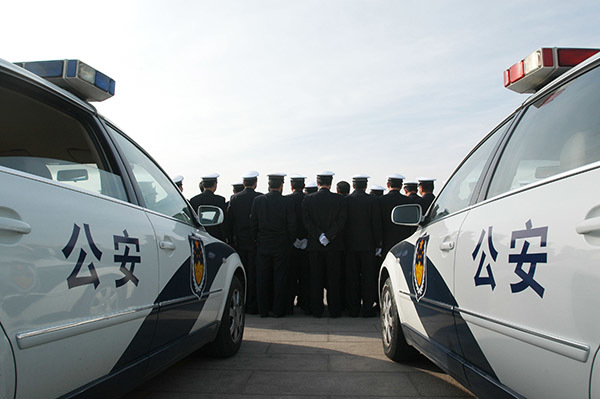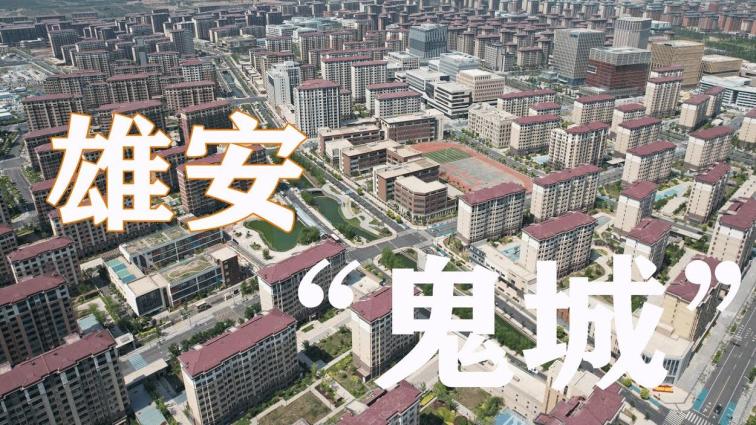File Photo: On November 10, 2021, a container ship docks outside the Victoria Harbour at the Kwai Tsing Container Terminal in Hong Kong, China. (Photo by Anthony Kwan/Getty Images)
[People News] Hong Kong’s four prominent families — the Li Ka-shing family of Cheung Kong Holdings, the Kwok Tak-seng family of Sun Hung Kai Properties, the Lee Shau-kee family of Henderson Land Development, and the Cheng Yu-tung family of New World Development — were once revered as near "divine" figures in Hong Kong. The Chinese Communist Party (CCP) has a historical precedent of persecuting capitalists. Since Xi Jinping took power at the 18th CCP National Congress in 2012, he has shown no mercy toward domestic capitalists, and naturally, the Hong Kong elite were no exception. Among these families, some escaped early and survived, while others got deeply entangled and suffered heavy losses. Today, these "Four Great Families" are painfully tasting the bitter fruit of communist socialism — their era of glory has officially ended.
An article published on July 21 by Up Media, authored by Zhuo Ran, reflects on the five years since the implementation of the Hong Kong version of the National Security Law, describing it as "like drinking ice water in the freezing cold — chilling to the bone." The article recounts the current fates of prominent figures who once resisted the law: Jimmy Lai remains imprisoned without trial for over a thousand days; Joshua Wong has faced additional charges while incarcerated; and Agnes Chow has gone into exile and completed a master’s degree overseas. However, the article notes, the most lamentable outcome is that of Hong Kong’s so-called "Four Great Families," who have now swallowed the bitter pill of communist socialism — their once-flourishing wealth now vanished like an illusion.
The article recalls that in the late 20th century, Hong Kong's high degree of autonomy and transparent legal system enabled extraordinary economic prosperity, earning it the nickname "Pearl of the Orient." After the 1997 handover, Hong Kongers still trusted Deng Xiaoping's promise of "50 years unchanged." With its unique British-influenced system, free trade port status, and international financial centre designation, Hong Kong emerged as one of the Four Asian Tigers.
During this golden age, the Four Great Families amassed staggering wealth: Li Ka-shing's Cheung Kong and Hutchison Whampoa, Lee Shau-kee's Henderson Land, Cheng Yu-tung’s New World Development, and Kwok Tak-seng’s Sun Hung Kai Properties. These families controlled over 75% of Hong Kong’s commercial properties and 45% of its residential development. They also dominated key infrastructure sectors, including ports, retail, energy, and telecommunications.
The article argues that historically, communism rose by promoting class struggle, and the CCP and capitalists are natural enemies. Xi Jinping, known for his hardline approach, has not hesitated to punish even mainland tycoons like Jack Ma, Pony Ma, and Richard Liu with the "iron fist of socialism." So why would he pass up the opportunity to deal with Hong Kong’s comprador class and realise the goal of “common prosperity” by “smashing the rich”?
After Xi took office, the most perceptive of the four — Li Ka-shing — quietly began shifting his assets to Europe, the U.S., and Australia. However, even with a net worth of $32.6 billion, Li appeared fragile under Xi’s rule. After news broke of his asset relocations, CCP media began to question his loyalty.
On September 12, 2015, Xinhua News Agency’s affiliated Liaowang Think Tank published an article titled “Don’t Let Li Ka-shing Get Away.” Two days later, a reposted article listed “Five Reasons Li Ka-shing Is Leaving Hong Kong: He’s Really Old, and So Is Hong Kong.” These articles sparked a major public backlash in mainland China. Nationalist internet users launched fierce verbal attacks, and Li was forced to publicly clarify his stance.
Party media depicted Li Ka-shing as having transformed from a revered business leader into a “fang-bearing monster.” On September 29, Li responded by emphasising that his companies would continue investing in China and expressed admiration for Xi Jinping.
Commentators noted that Li Ka-shing was the first among the Four Families to grasp the nature of communism and experience Xi Jinping’s methods. Some criticised Xi for adopting a planning-economy mindset, which contradicts the principles of Hong Kong’s Basic Law.
In March this year, Li’s CK Hutchison sold 43 port assets — including two near the Panama Canal — to the U.S.-based investment firm BlackRock for $22.8 billion.
This move angered Beijing. CK Hutchison insisted the deal was purely commercial. However, both the Hong Kong and Macao Affairs Office and the Liaison Office reposted critical articles from the pro-Beijing Ta Kung Pao, accusing the company of “putting profits above patriotism” and “disregarding national interests.” CCP media even went as far as calling the move “a national humiliation.”
According to Hong Kong media, China’s State Administration for Market Regulation (SAMR), under top-level instructions, is now investigating whether the transaction poses national security risks or violates antitrust laws. There is also growing concern that the Hong Kong government might invoke the National Security Law to suppress the deal.
Up Media’s article states that due to Li Ka-shing’s deep understanding of the CCP’s nature and his early asset transfers, he remains the only one of the Four Families to have preserved his wealth. The other three, blinded by their trust in the Party and their entanglement in its politics, have suffered significant financial losses amid China’s economic downturn.
The Cheng Yu-tung family, owners of New World Development, has been hit the hardest, nearing the brink of bankruptcy.
Now led by third-generation heir Adrian Cheng, the family business was severely impacted when Adrian launched a “Quick Win” strategy in 2022 — pouring HK$20 billion into acquiring premium projects in the Greater Bay Area, despite a downturn in the mainland real estate market. These moves failed to reverse declining performance. In 2024, New World Development posted a net loss of HK$17.1 billion — its first loss in 20 years. The net debt ratio rose to 57.5%, and including perpetual bonds, the actual figure reached 88%. Under Adrian’s leadership, the company’s market capitalisation has shrunk by HK$72 billion.
The article suggests that the 46-year-old Adrian Cheng, unlike his father and grandfather, lacks the resilience built through hardship and — more critically — fails to grasp the true nature and history of the CCP. This ignorance led to reckless investments and disastrous outcomes.
Back in 1952, during the CCP’s early rule, the regime launched the “Five-Anti Campaign” targeting capitalists who were accused of being “ungrateful and aggressively opposing the Party and government.” This campaign effectively wiped out many business owners.
According to Professor Yang Kuishong of East China Normal University, incomplete statistics show that from January 25 to April 1 of that year in Shanghai alone, at least 876 individuals committed suicide due to the campaign, averaging over 10 per day. Many chose to die alongside their spouses or children.
By the late 1970s, China’s economy was on the verge of collapse, prompting Deng Xiaoping to initiate “reform and opening up,” which once again welcomed capitalists. But under Xi Jinping, the “socialist iron fist” has returned, and capitalists and private entrepreneurs in CCP-controlled territories once again face lives filled with fear and uncertainty.
(First published by People News)











News magazine bootstrap themes!
I like this themes, fast loading and look profesional
Thank you Carlos!
You're welcome!
Please support me with give positive rating!
Yes Sure!